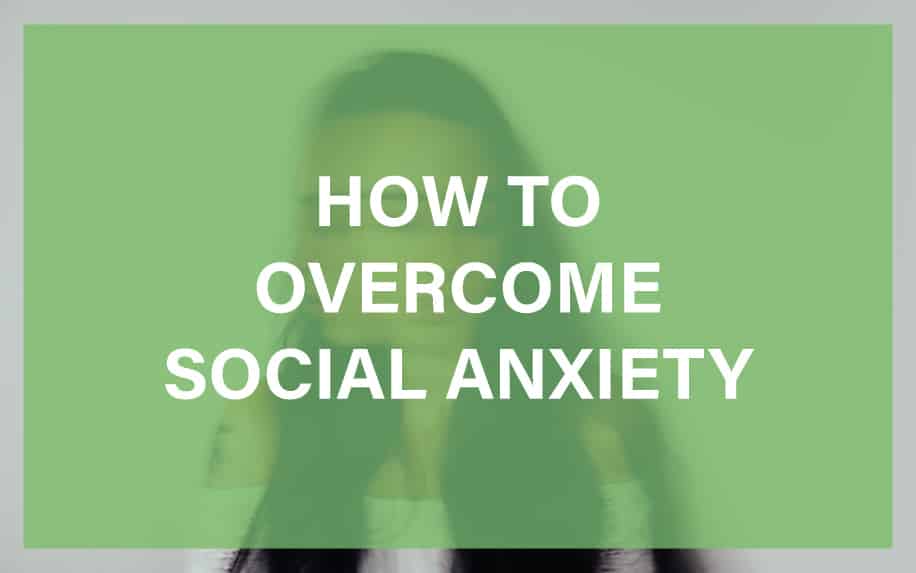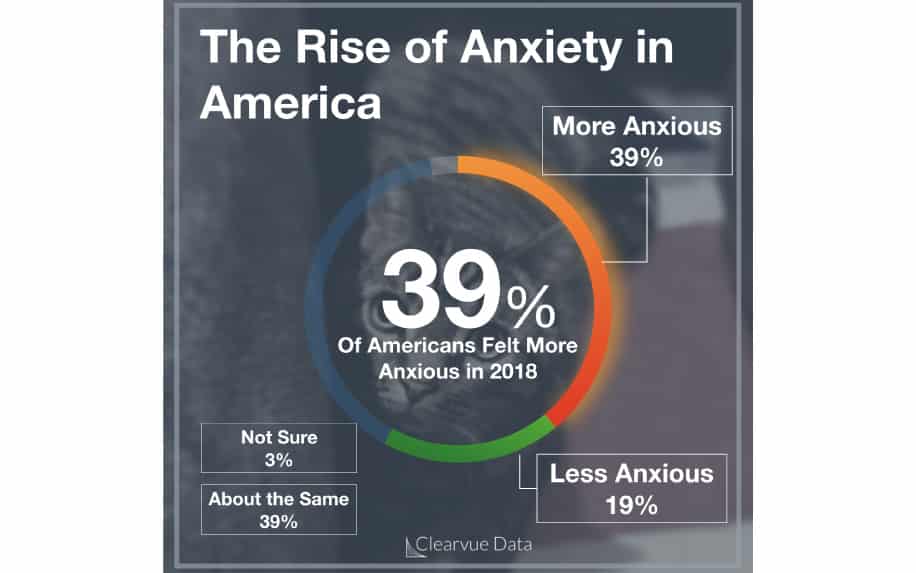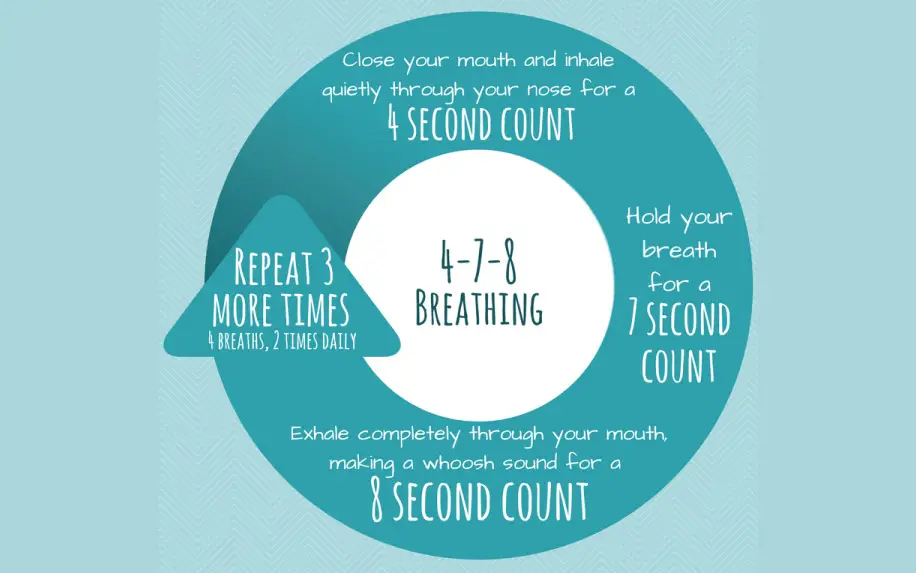Social anxiety, often misunderstood, is a prevalent condition that can hinder individuals from pursuing their aspirations. Unlike generalised anxiety disorder, social anxiety manifests in specific social settings, triggering physical symptoms and a strong aversion to social interactions. This tendency to isolate oneself may seem like a coping mechanism, but it hinders personal and professional growth.
In today’s workplace, communication and teamwork are crucial, and anxiety can be perceived as a lack of these essential soft skills. However, individuals with anxiety may possess exceptional qualifications, overshadowed by their inability to showcase their abilities effectively. Overcoming social anxiety is a challenging yet achievable endeavour.
Among the consequences of social phobia are experiencing reduced job satisfaction and engagement, suffering from lower productivity, increased absenteeism, difficulty forming and maintaining relationships with colleagues, and limited career advancement opportunities. Such consequences can make life challenging for people with social phobia, affecting their professional lives and, consequently, disrupting their personal lives.
So, walk with us through this article to learn more about social anxiety and devise a plan to banish it for good.
Table of Contents
Manifestations of Social Anxiety at Work
Social anxiety, also known as social phobia, can significantly impact an individual’s work life, affecting their performance, relationships, and overall well-being. It manifests in various ways, often leading to avoidance behaviours and distress in social situations. Here’s how social anxiety can manifest in the workplace:

Fear of Public Speaking or Presenting
The agonising fear of public scrutiny and judgment often emerges as a formidable manifestation of social anxiety, casting a shadow over presentations and public speaking engagements. Individuals grappling with this condition may experience a surge of intense anxiety, their bodies betraying them with tremors, sweating, and a racing heart.

Difficulty Participating in Meetings or Expressing Opinions
The mere prospect of standing before an audience can trigger a cascade of avoidance behaviours, leading to refusals to present or take on speaking roles. This crippling fear can significantly hinder professional growth and limit opportunities to showcase one’s expertise and talents.
Anxiety can cast a silencing spell over even the most insightful individuals, hindering their participation in meetings and robbing them of opportunities to contribute their valuable perspectives. The fear of judgment or negative reactions can transform vibrant minds into passive observers, their voices stifled by the shackles of anxiety.
This self-imposed silence not only deprives the individual of the chance to share their expertise but also diminishes the team’s collective wisdom, potentially leading to missed opportunities and suboptimal outcomes.
Avoidance of Social Activities with Colleagues
Social anxiety can erect a formidable barrier to building connections and fostering a sense of camaraderie, hindering professional relationships and teamwork. Individuals gripped by anxiety may find themselves retreating from social gatherings, lunch outings, or after-work events, inadvertently isolating themselves and missing out on chances to connect with workmates on a deeper level.
This avoidance can hinder the development of trust, rapport, and a sense of belonging, essential ingredients for effective teamwork and collaboration. It can also induce feelings of isolation, loneliness, and a sense of being on the outside looking in, further exacerbating the individual’s social anxiety and hindering their overall well-being intense
Anxiety During Performance Reviews or Feedback Sessions
The looming ghost of criticism or negative feedback can cast a pall over performance reviews or feedback sessions, transforming these moments of potential growth into anxiety-ridden encounters. Individuals grappling with anxiety may find themselves consumed by intense self-criticism, their minds magnifying perceived shortcomings and dwelling on potential negative assessments. This heightened anxiety can cloud their ability to process feedback constructively, hindering their professional development and limiting their opportunities for improvement.
Excessive Worry about Being Judged or Criticised by Colleagues
Anxiety can create an unrelenting cycle of worry and self-doubt, leading to excessive anxiety about being judged or negatively evaluated by colleagues. Individuals trapped in this cycle may find themselves overly self-conscious, their thoughts relentlessly replaying every interaction, overanalysing every word uttered, and dissecting every facial expression.
This relentless self-scrutiny can transform even the most mundane interactions into minefields of potential criticism, draining their energy and hindering their ability to engage authentically in the workplace. The constant fear of judgment can also manifest in a compulsive need for reassurance, leading individuals to seek validation and approval from colleagues on an ongoing basis.
Simple Tips and Techniques to Control Your Anxiety:
Embarking on the path to overcome anxiety is an unwavering and courageous endeavour, a journey that requires resilience and determination. Yet, amidst the challenges that lie ahead, there are readily accessible techniques that can serve as your anchor when feelings of overwhelm or anxiety threaten to engulf you.
These tools, like beacons in the storm, can guide you through the waves of self-doubt and fear, reminding you of your inner strength and the power you possess to navigate social situations with confidence.
Practice deep breathing exercises.
When you feel anxious, your breathing becomes shallow and rapid. This can make your anxiety worse. Deep breathing exercises can aid in regulating your heart rate and calming your mind. There are numerous deep breathing techniques that you can try.
One easy exercise is to breathe in through your nose for three or four counts, hold your breath for six counts, and then exhale through your mouth for seven counts.

Engage in Positive Self-talk
When you’re anxious, focusing on negative thoughts is easy. However, it’s important to remember that your thoughts are not always accurate. Challenge your negative thoughts by asking yourself if they are really true.
Are you really as incompetent as you think you are? Is everyone really judging you? Try to banish negative thoughts with positive ones instead of focusing on them. Remind yourself of your strengths and accomplishments.
Visualise Success
Take a few minutes to close your eyes and imagine yourself succeeding in the situation that you’re anxious about. See yourself delivering a confident presentation, participating actively in a meeting, or networking with colleagues. Visualisation can help train your mind to believe that you can succeed, boosting your confidence and reducing your anxiety.
Take Breaks When You Need Them
If you’re feeling overwhelmed, take a few minutes to step away from the situation. Go for a walk, listen to some music, or do some relaxation techniques. Taking breaks can help to clear your head and reduce your anxiety. And most importantly, practice self-compassion. Be kind to yourself and acknowledge your progress, no matter how small. Avoid self-criticism and focus on celebrating your accomplishments along the way.

Sustainable Ways to Beat Social Anxiety for Good
Overcoming anxiety in order to thrive at work requires a combination of self-management strategies, professional support, and a supportive work environment. Here’s a comprehensive guide to help you navigate this journey:
Understand Your Social Anxiety
Begin by gaining a deeper understanding of your social anxiety, its triggers, and how it manifests in your work life. This self-awareness will help you develop targeted strategies to address your specific challenges.
Seek Professional Help
Consider seeking professional guidance from a therapist specialising in anxiety disorders. They can provide personalised assessment, diagnosis, and treatment options, such as cognitive-behavioural therapy (CBT) and exposure therapy, to help you manage your symptoms and develop coping mechanisms.
Practice Cognitive Restructuring
Challenge negative thoughts and self-beliefs that contribute to your anxiety. Replace them with more realistic and positive affirmations to boost your self-confidence and reduce fear.
It also helps to engage in gradual exposure, where you gradually expose yourself to feared social situations at work, starting with smaller interactions and progressing to more challenging ones. This gradual exposure can help you desensitise yourself to anxiety triggers and build confidence.
Develop Social Skills
Enhance your social skills through practice and training. Join workshops, practice role-playing, or seek guidance from a social skills trainer to improve your communication, assertiveness, and social interaction abilities.
Utilise Relaxation Techniques
Employ relaxation techniques, such as deep breathing exercises, mindfulness meditation, or progressive muscle relaxation, to manage anxiety symptoms at the moment. These techniques can help calm your mind and body before or during stressful social interactions.
Build a Support Network
Connect with supportive colleagues, friends, or family members who understand your anxiety. Having a supportive network can provide encouragement, understanding, and a sense of belonging.
Seek Workplace Accommodations
Discuss with your employer or HR department about potential workplace accommodations that can help you control your anxiety, such as flexible work arrangements, alternative communication methods, or reduced meeting attendance.
Set Realistic Goals
Break down larger goals into smaller ones with more achievable steps. This will make progress seem less daunting and help you stay motivated and engaged in your efforts to overcome social anxiety.
Remember, overcoming social anxiety is a journey, not a destination. Be patient with yourself, celebrate your progress, and seek support when needed. With dedication and the right strategies, you can manage your anxiety, build confidence, and thrive in your professional life.
Medical vs. Non-Medical Approaches to Social Anxiety:
Social anxiety can be a debilitating condition, impacting relationships, work, and overall well-being. Fortunately, various approaches exist to manage its symptoms, each with its advantages and disadvantages.
Medical Approaches:
Pros:
- Faster symptom relief: Medications like antidepressants and anxiolytics can provide immediate relief from anxiety symptoms, especially for severe cases.
- Effective for persistent anxiety: Medications can manage chronic anxiety effectively, promoting sustained symptom control.
- Targeted approach: Certain medications address specific aspects of anxiety, like physical symptoms or social triggers.
Cons:
- Potential side effects: Medications can cause side effects like drowsiness, fatigue, or sexual dysfunction.
- Dependence and withdrawal: Long-term use can lead to dependence and withdrawal symptoms upon discontinuation.
- Focus on symptom management, not cure: Medications address symptoms but don’t necessarily address the underlying causes of social anxiety.
Non-Medical Approaches:
Pros:
- Holistic approach: Therapies like CBT address the cognitive and behavioral aspects of anxiety, aiming at long-term change.
- No side effects: Therapies are natural and free from potential medication side effects.
- Empowerment and self-management: Therapies equip individuals with skills to manage their anxiety independently, boosting confidence.
Cons:
- Slower symptom reduction: Therapies often require consistent practice and effort over time to see significant results.
- May not be suitable for severe cases: Severe anxiety might require additional support from medication in conjunction with therapy.
- Individual effectiveness: Success can vary depending on the individual’s commitment and response to the specific therapy approach.
Short-Term vs. Long-Term Treatments:
Short-Term:
- Medications: Can provide immediate relief for acute anxiety episodes but require ongoing use for sustained benefit.
- Lifestyle changes: Relaxation techniques, mindfulness, and exercise can offer quick symptom relief but need consistent practice for long-term impact.
- Skills-based therapies: Short-term CBT interventions can equip individuals with basic coping mechanisms for immediate situations.
Long-Term:
- Therapy: In-depth CBT or psychotherapy can address underlying thought patterns and behaviors, creating lasting changes in anxiety management.
- Support groups: Ongoing participation in support groups can provide ongoing encouragement, shared experiences, and social connection.
- Mindfulness and meditation: Regularly practicing mindfulness and meditation can cultivate long-term resilience and emotional regulation skills.
Ultimately, the best approach for managing social anxiety is individualized. Consider the severity of symptoms, personal preferences, and desired outcomes when choosing between medical and non-medical approaches, short-term and long-term options. Combining different modalities can often lead to the most effective results.
Remember, seeking professional help from a therapist or mental health professional is crucial for developing a personalized treatment plan and navigating the journey towards overcoming social anxiety.
Comparison of Approaches to Social Anxiety
| Feature | Medical | Non-Medical | Short-Term | Long-Term |
|---|---|---|---|---|
| Type of Approach | Medication, Medical Intervention | Therapy, Lifestyle Choices | Immediate Symptom Relief, Specific Techniques | Holistic Management, Personal Growth |
| Pros | Faster Symptom Relief, Effective for Persistent Anxiety, Targeted Approach | No Side Effects, Holistic Approach, Empowerment & Self-Management | Quick Symptom Relief, Basic Coping Skills | Lasting Changes in Anxiety Management, Ongoing Support & Connection, Emotional Regulation Skills |
| Cons | Potential Side Effects, Dependence & Withdrawal, Symptom Management, Not Cure | Slower Symptom Reduction, May Not Be Suitable for Severe Cases, Individual Effectiveness | Needs Consistent Practice, May Not Address Root Causes | Investment of Time & Effort, Can be Emotionally Challenging |
| Examples | Antidepressants, Anxiolytics | CBT, Psychotherapy, Yoga, Mindfulness, Exercise | Relaxation Techniques, Short-Term CBT Interventions | In-Depth CBT, Support Groups, Long-Term Mindfulness Practice |
Note: This table is a general comparison and individual experiences may vary. Consult a healthcare professional or mental health specialist for personalized recommendations.
Quotes from psychologists specializing in social anxiety treatment and cognitive behavioural therapy (CBT):
On the nature of social anxiety:
- “Social anxiety is not about being shy or introverted. It’s about an intense fear of being judged or scrutinized by others, leading to avoidance and distress in social situations.” – Dr. Claire Weekes, clinical psychologist and author of “Self-Help for Social Anxiety.”
- “CBT for social anxiety helps people understand the negative thought patterns and beliefs that fuel their anxiety and develop coping mechanisms to challenge and change them.” – Dr. Edmund J. Bourne, director of the UCLA Anxiety and Depression Clinic.
On CBT techniques for social anxiety:
- “Exposure therapy is like a muscle-building exercise for the mind. By gradually facing your fears in safe and controlled environments, you can learn to manage your anxiety and build confidence.” – Dr. David D. Burns, psychiatrist and author of “Feeling Good: The New Mood Therapy.”
- “Cognitive restructuring helps you identify and challenge distorted thinking patterns that contribute to your anxiety. Reframing these thoughts in a more realistic and positive light can significantly reduce distress.” – Dr. Helen B. Kringlen, cognitive psychologist and author of “The Book of Fears.”
On the benefits of CBT for social anxiety:
- “With dedicated practice, CBT can be incredibly effective in reducing social anxiety symptoms, improving social interactions, and enhancing overall quality of life.” – Dr. Richard P. Swinson, president of the Anxiety and Depression Association of America.
- “The skills you learn in CBT are not just for managing social anxiety. They can be applied to other areas of your life, helping you become more resilient and adaptable in the face of challenges.” – Dr. Martin M. Antony, co-founder of the International OCD Foundation and author of “The Shyness and Social Anxiety Workbook.”
To personalize the quotes, consider:
- Focusing on specific aspects of social anxiety: Choose quotes that resonate with your target audience’s concerns, such as fear of public speaking, dating anxiety, or workplace interactions.
- Highlighting different CBT techniques: Showcase quotes that delve into the specific methods used in CBT, such as relaxation exercises, cognitive restructuring, or social skills training.
- Sharing inspirational messages: Include quotes that emphasize the hope and empowerment that CBT can bring to individuals struggling with social anxiety.
Frequently Asked Questions:
1. What if I’m afraid to seek professional help?
Many people feel this way. Remember, therapists are professionals trained to support you in a safe and non-judgmental space. Seek a therapist you feel comfortable with, and it can be one of the most empowering steps you take.
2. Can medications cure social anxiety?
Medications can effectively manage symptoms, but they don’t necessarily address the underlying causes. Combining medication with therapy can offer a more comprehensive approach.
3. Will I always have social anxiety?
Not necessarily. With dedicated effort and effective treatment, you can significantly reduce symptoms and build confidence in social situations. Many people learn to manage their anxiety and live fulfilling lives.
4. What can I do right now to feel better?
Practice relaxation techniques like deep breathing or meditation. Focus on small, achievable goals in social situations. Exercise regularly, spend time with supportive people, and prioritize self-care.
5. Where can I find more resources and support?
Mental health organizations like the Anxiety and Depression Association of America (ADAA) offer valuable resources and support groups. Your healthcare professional can also provide recommendations for local options.
Conclusion:
Social anxiety can be a challenging roadblock, but it’s important to remember you’re not alone. By understanding the different approaches available, from medication to therapy and lifestyle choices, you can empower yourself to find the path that works best for you.
Whether you choose a short-term intervention or a longer-term journey of personal growth, remember that healing and transformation are possible. Embrace the possibilities, don’t hesitate to seek support, and take the first step towards a life filled with connection and confidence.


